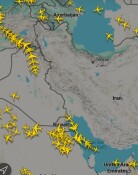[Guest opinion] Delay in NK reforms may lead to `2nd E. Germany`
[Guest opinion] Delay in NK reforms may lead to `2nd E. Germany`
Posted February. 20, 2001 18:16,
![[Guest opinion] Delay in NK reforms may lead to `2nd E. Germany`](https://dimg.donga.com/egc/CDB/ENGLISH/Article/20/01/02/20/2001022090318.jpg)
While attending a ceremony marking the 40th anniversary of the founding of modern Germany in the last days of the divided Europe, Mikhail Gorbachev, former secretary general of the defunct Soviet Communist Party, said that anyone who came too late would face the penalty of death, implying that there was little hope for East Germany`s survival.
The North Korean leadership, which closely followed the process of Eastern Europe`s collapse, must have been greatly shocked. Pyongyang desperately struggled to diminish the impact of the Berlin Wall`s collapse with the contention that it resulted from the failure of certain nations to keep to communist fundamentals.
The North Korean regime managed to survive, but it had to pay a high price for its political and economic rigidity.
A main point of discussion on the future of the Korean peninsula has to do with whether North Korea is changing for the better. And if so, to what extent is it changing? In terms of classical logic, the North must adapt to change or face extinction. And many agree that adaptation is also needed for its leaders to maintain political control of the nation.
Although the Pyongyang leadership dislikes the term "reform," the communist state has undergone significant changes over the past few years. Following a constitutional amendment in 1998, the North has embarked on structural reforms in its moribund industrial sector. In view of the failure of its centralized distribution system, the North`s next step is to restructure the commercial and trade sectors.
Theorists on the pace and extent of changes in North Korea run the risk of miscalculating, as there is insufficient information available on the reclusive state. Nonetheless, some North Korea watchers contend that a fierce ideological argument is under way among the members of Pyongyang`s leadership. In order to cope with growing challenges, North Korean Defense Commission Chairman Kim Jong-Il is reportedly underscoring the necessity of introducing a sort of perestroika.
However, the key question that remains unanswered is how far Pyongyang is willing to go. The issue boils down to whether there is any way for the North Korean leadership to maintain its political control and its ruling structure while promoting a policy of political and diplomatic openness. Some experts forecast that economic liberalization could lead to political democratization and eventually to the extermination of the communists` monopoly on power.
A Korean specialist cautioned that if the South didn`t exist, the North would have taken reformative steps long before China. His point is well taken. Pyongyang`s reform drive, if it even exists, has built-in limitations. These are mainly concerned with the North`s geographical proximity to its rival. If the North were deprived of its political ideology and the communist style of economic management, the raison d`etre of the North Korean regime would virtually disappear. It is impossible for Pyongyang to implement a capitalist system because the capitalist South sits right next door.
In this respect, the situation on the Korean peninsula is less like that in China and more like the situation in Germany in the 1980s. With a view to distinguishing itself ideologically from West Germany, the East German communists spurned all kinds of viable changes. As a result, they sacrificed countless lives, as Gorbachev had predicted. A similar situation exists on the Korean peninsula.
Ronald Meinardus, Head of Korea branch of the Friedrich-Naumann-Foundation




![[단독]폴란드, 韓 해군 최초 잠수함 ‘장보고함’ 무상 양도 안받기로](https://dimg.donga.com/c/138/175/90/1/wps/NEWS/IMAGE/2026/02/27/133437397.1.jpg)


